-
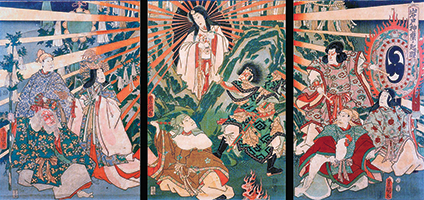
For one month out of each year, human prayers are ignored as eight million Shinto deities, or kami, assemble to sort out their own affairs. Emergency sessions can also be called: the eighth-century Kojiki tells of how the sun goddess Amaterasu barricaded herself in a cave after being insulted by her rival Susano-wo. An ad hoc council voted to fine the offender and establish a committee to coax Amaterasu into returning to her duties
-
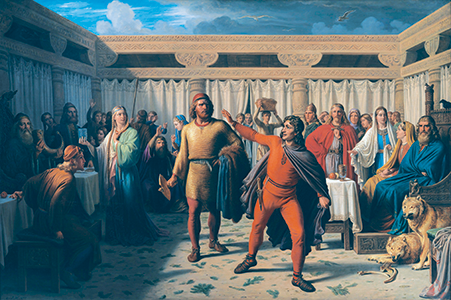
The thirteenth-century Icelandic poet Snorri Sturluson describes in his Gylfaginning how one of the three roots of the world tree Yggdrasil leads to the Well of Urd, where the Norse gods gather every day to meet in council. It is there that the trickster god Loki convinced his fellow gods to employ a clever ruse rather than use force to defeat the giant Thrym, who had stolen Thor’s hammer.
-
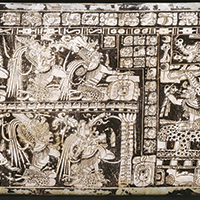
In Mesoamerican cosmology, a council of Mayan deities—the Framer, the Shaper, the Sovereign, the Quetzal Serpent, She Who Has Borne Children, He Who Has Begotten Sons, and Heart of Sky—create the earth, animals, and several generations of humans through a process of discussion and delegation. “They thought and they pondered,” reads the sixteenth-century Popol Vuh. “They reached an accord, bringing together their words and their thoughts.”
-
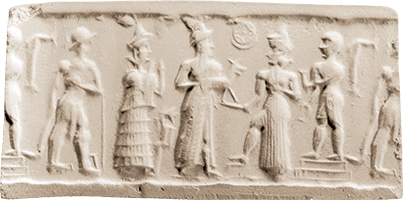
Ancient myths tell of an Ordained Assembly of the Great Gods, in which fifty Mesopotamian deities debate issues until they reach a consensus. In a Babylonian creation myth from the second millennium bc, the increasing madness of Tiamat, the goddess of primeval chaos, leads the assembly to elect an executive leader. The victor, Marduk, thereafter serves as ruler of the gods.
-

A papyrus written around 1155 bc describes a protracted and bitter conflict among the Egyptian gods over which of them would rule the land. While the majority support Horus, the other candidate, Seth, threatens violence and repeatedly blocks a vote, resulting in a 160-year deadlock that ends only after the dead god Osiris writes a letter endorsing Horus in absentia.
-
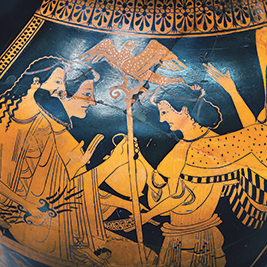
In Homer’s eighth-century-bc Iliad and Odyssey, the gods of the Greek pantheon use debates to settle questions of how best to manage human affairs, as well as their own. After Hephaestus finds his wife, Aphrodite, in bed with Ares, the god of war, he summons the rest of the pantheon from Mount Olympus to judge the couple. The deities agree to force Ares to pay monetary damages.